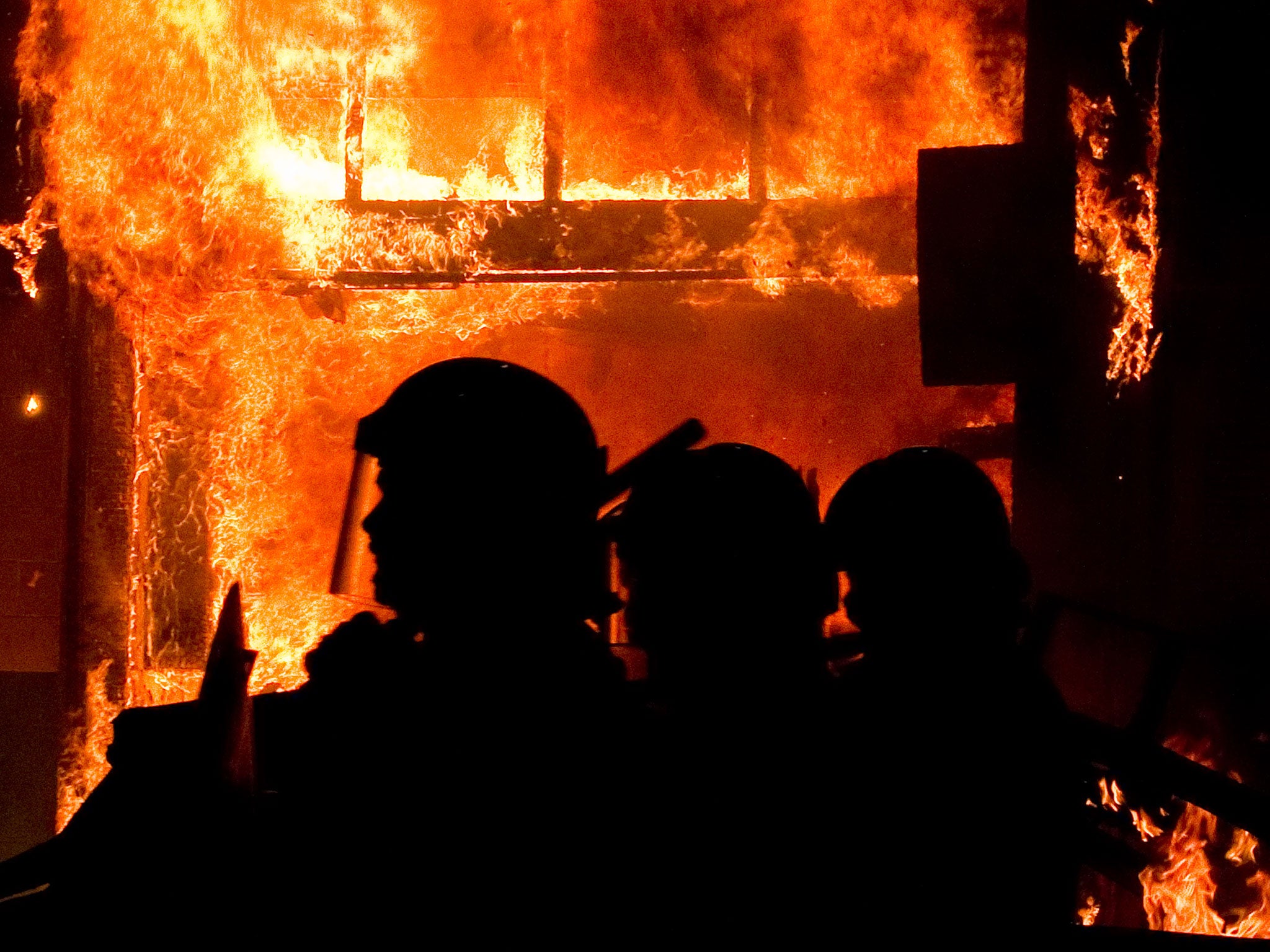London riots prisoner who died after gym session was 'failed by system of checks that had fallen by wayside'

Your support helps us to tell the story
From reproductive rights to climate change to Big Tech, The Independent is on the ground when the story is developing. Whether it's investigating the financials of Elon Musk's pro-Trump PAC or producing our latest documentary, 'The A Word', which shines a light on the American women fighting for reproductive rights, we know how important it is to parse out the facts from the messaging.
At such a critical moment in US history, we need reporters on the ground. Your donation allows us to keep sending journalists to speak to both sides of the story.
The Independent is trusted by Americans across the entire political spectrum. And unlike many other quality news outlets, we choose not to lock Americans out of our reporting and analysis with paywalls. We believe quality journalism should be available to everyone, paid for by those who can afford it.
Your support makes all the difference.A man who died in prison, where he was being held after admitting to the theft of a gingerbread man during the London riots, was failed by a system of safety checks which had “fallen by the wayside” over the years, an inquest heard today.
James Best died at the age of 37 after collapsing following a session in the gym of Wandsworth Prison in September 2011. Today, a Prison Officer responsible for the facility said there was no way of knowing if prisoners with medical problems had been passed fit by the unit’s doctors before being allowed to train.
While Mr Best told staff he did not have a history of symptoms which would suggest heart problems, he did point out other health issues. This, the inquest at Westminster Coroner’s Court heard, should normally have automatically resulted in him being prevented from using the gym for his own safety while he was referred to the GP.
But documents shown to the court, they agreed, did not seem to suggest this procedure was followed in Mr Best’s case. And, even if it were, they said, staff would have no way of checking that Mr Best had seen the doctor to be allowed to participate in strenuous physical activity , as instructed.
Mr Best became sweaty, short of breath and collapsed in his cell following what was called a heavy gym session. Help was sought but he died soon after. A post mortem showed that the cause of death was heart failure.
Giving evidence to the inquest, Mr Best’s foster mother Dolly Daniel described how she took him in as a teenager. She sobbed as she told the Coroner and jury that he became a “hero” to her other children. She said that Mr Best, who had trials to play for his County as a youngster, would play cricket with them in the hallway.
“Teenagers can be self-absorbed, yet James always had a thought for the underdog. He brought home mates who he felt needed tender loving care or a bed for the night,” she said. And she told of how his favourite television programme was the Fresh Prince of Bel Air, the lead character of which he saw as being in a similar situation to himself. “He was our Fresh Prince,” said Ms Daniel.
Giving his evidence, former Wandsworth Prison Physical Education Officer Shane Donnelly said that it was likely that no-one spoke to Mr Best after he detailed his health problems but that staff were only following a system that was in place before he started in the job.
The forms used by Mr Best and others to report their own health issues were shown to the court, some of which had been signed by fellow prisoners working as gym orderlies, rather than by prison staff as required.
Asked if the system of reporting health problems had weaknesses, Mr Donnelly replied: “Yes”. Asked if it was possible for staff to distinguish between those who had been passed fit and those who had not, he replied: “not in August that year [when Mr Best died], no.” Asked if there was any way to monitor if those prisoners who were advised to see a GP before using the gym had done so, he responded: “no.”
He told the inquest: “It was a system that had been on a downward spiral, it was not working well…it was very hit and miss.” And, asked if it had failed Mr Best, Mr Donnelly replied: “yes.” The inquest into Mr Best’s death was adjourned until tomorrow.
Join our commenting forum
Join thought-provoking conversations, follow other Independent readers and see their replies
Comments